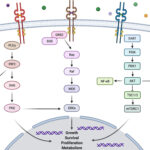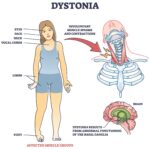A sore throat, clinically known as pharyngitis, is a common condition that affects individuals of all ages. It is characterized by pain, irritation, or scratchiness in the throat, often worsening during swallowing. While most sore throats are mild and self-limiting, some can be indicative of serious infections requiring medical intervention. Understanding the underlying causes, appropriate diagnostic approaches, and effective treatment options is critical for prompt relief and prevention of complications.

Common Causes of Sore Throat
Viral Infections
The majority of sore throats are caused by viral infections. These include:
- Rhinovirus (common cold)
- Influenza (flu)
- Coronavirus
- Epstein-Barr virus (infectious mononucleosis)
- Adenovirus
These infections are typically self-limiting and resolve within 5–7 days.
Bacterial Infections
The most clinically significant bacterial cause is Group A Streptococcus (GAS), resulting in strep throat. Other bacterial pathogens include:
- Mycoplasma pneumoniae
- Chlamydia pneumoniae
- Neisseria gonorrhoeae (rare)
Prompt antibiotic treatment is required in bacterial cases to avoid complications.
Environmental and Lifestyle Triggers
Non-infectious causes include:
- Allergens (pollen, mold, pet dander)
- Dry air
- Pollutants (smoke, chemical fumes)
- Voice strain (shouting, prolonged talking)
- Gastroesophageal reflux disease (GERD)
Symptoms Associated with Sore Throat
While throat discomfort is the hallmark symptom, others may indicate the underlying cause:
| Symptom | Likely Cause |
|---|---|
| Sudden onset, high fever | Bacterial (GAS) infection |
| Cough, runny nose | Viral infection |
| White patches on tonsils | Strep throat or mononucleosis |
| Hoarseness | Viral laryngitis or strain |
| Swollen lymph nodes | Bacterial or viral infection |
| Difficulty swallowing | Severe inflammation or abscess |
| Rash | Scarlet fever (GAS-associated) |
Diagnostic Evaluation of Sore Throat
Accurate diagnosis is essential to determine the need for antibiotics or supportive care.
Clinical Assessment
- History: Onset, duration, associated symptoms
- Physical Exam: Tonsillar swelling, exudates, erythema, cervical lymphadenopathy
Diagnostic Tests
- Centor Criteria help guide testing for strep throat.
- RADT offers rapid detection of GAS.
- Throat cultures confirm diagnosis when RADT is negative but suspicion remains.
Treatment Options for Sore Throat
Supportive Care for Viral Infections
Most sore throats from viral infections require only symptom relief:
- Hydration: Warm fluids soothe inflammation
- Saltwater gargles: Reduce throat swelling
- Analgesics: Acetaminophen or ibuprofen
- Throat lozenges and sprays
Antibiotic Therapy for Bacterial Infections
In cases of confirmed or highly suspected streptococcal pharyngitis, treatment includes:
- Penicillin V (first-line)
- Amoxicillin
- Erythromycin (for penicillin-allergic individuals)
Treatment duration typically spans 10 days to prevent complications like rheumatic fever.
Complications of Untreated Sore Throat
Failure to address bacterial infections can lead to serious outcomes:
- Peritonsillar abscess
- Rheumatic fever
- Post-streptococcal glomerulonephritis
- Otitis media or sinusitis
- Airway obstruction in severe cases
Early recognition and treatment are essential for complication prevention.
Special Considerations in Sore Throat Management
Children
Pediatric patients are more prone to streptococcal infections. Testing and antibiotics should be considered when criteria are met.
Immunocompromised Individuals
Patients with weakened immune systems may develop fungal pharyngitis (e.g., Candida albicans) and require antifungal therapy.
Sore Throat in COVID-19
Sore throat can be an early symptom of COVID-19. Testing is warranted in cases of exposure or concurrent symptoms like cough and anosmia.
Prevention Strategies for Recurrent Sore Throats
- Good hygiene: Handwashing, avoiding shared utensils
- Humidify indoor air during dry seasons
- Avoid smoking and secondhand smoke
- Treat allergies or reflux that contribute to chronic irritation
- Tonsillectomy may be advised in recurrent strep cases
Frequently Asked Questions
When should I see a doctor for a sore throat?
Seek medical attention if symptoms persist beyond 7 days, worsen, or include high fever, difficulty breathing, or neck swelling.
Can I treat a sore throat without antibiotics?
Yes, if the cause is viral. Antibiotics are ineffective against viruses.
How contagious is strep throat?
Highly contagious; spread through respiratory droplets. Patients should stay home for 24 hours after starting antibiotics.
Are home remedies effective for sore throat?
Yes, remedies like warm tea, honey, and saltwater gargles can alleviate symptoms but are not a cure for infections.
Can allergies cause sore throat?
Yes, postnasal drip from allergic rhinitis can irritate the throat lining and cause soreness.
A sore throat is a symptom with diverse etiologies ranging from benign viral infections to serious bacterial diseases. Accurate diagnosis through clinical assessment and testing ensures appropriate treatment. By understanding the causes and implementing timely interventions—whether supportive care or antibiotics—we can minimize complications and promote faster recovery.

